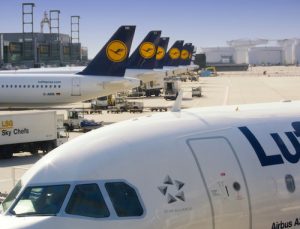Over the years, airlines have tried everything to force consumers to book directly with their own websites rather than through online travel agencies and fare aggregators such as Expedia, Priceline and Kayak. They do this, quite simply, to avoid paying fees associated with listing and selling their fares through online and "bricks-and-mortar" travel agencies, and it also helps them sell products and services such as extra-legroom seats, credit cards, frequent flyer programs, and so on, that cannot be peddled elsewhere.
First they tried the bonus frequent flyer mile route. You'd get 500 extra miles on some airlines for a direct booking.
They've also tried offering promo code incentives —20% or $50 or $24 or $200 off a fare if you book directly using a promo code (used often by Frontier Airlines and Spirit, but even Qatar, Air New Zealand, JetBlue, and others). This cuts into revenue, however, so it's a ploy that airlines disdain.
Then there's the Southwest and Allegiant Airlines model: simply not listing their fares on third-party sites. This seems to work quite well for Southwest but other major airlines never dared follow suit.
And some airlines have tried removing their fares selectively from some but not all sites (as Delta has recently done, removing fares from sites like Hipmunk, TripAdvisor, and others).
Carrots didn't work? How about a stick?
The latest method: instead of offering a carrot such as bonus miles or discounts, maybe a stick will work. Lufthansa Group (Lufthansa, Austrian, Brussels, and SWISS) will add, starting Sept. 1, an $18 fee for all bookings made anywhere but on those airlines' websites.
The only sure-fire way of accomplishing direct bookings is the Southwest model—simply don't sell fares anywhere else but the airline website. But this added fee will provide a huge disincentive to book fares anywhere else.
What this means is simple: many consumers, once they learn they're paying $18 more to book on Expedia or Priceline and their many affiliated sites, will use those sites to search for fares and then book direct. Of course, many consumers already do this, but the added disincentive being introduced by Lufthansa will hasten this trend.
Will others follow?
How will Expedia, Priceline and other online travel agencies and meta search sites react? Will we see them pull Lufthansa's fares from their search engines, as has happened in past tussles between, for example, American and Orbitz? Will they start charging a fee of their own for each airfare search to make up for lost revenue? If they do, it will make airfare comparison-shopping harder and potentially more expensive than ever, especially if other airlines copy Lufthansa's move, which seems likely.
What seems clear is that, if this Lufthansa initiative is copied industry-wide, the revenue these third-party sites earn will fall and they won't take this lying down. It's going to be an interesting autumn in the ever-changing world of airfares.






